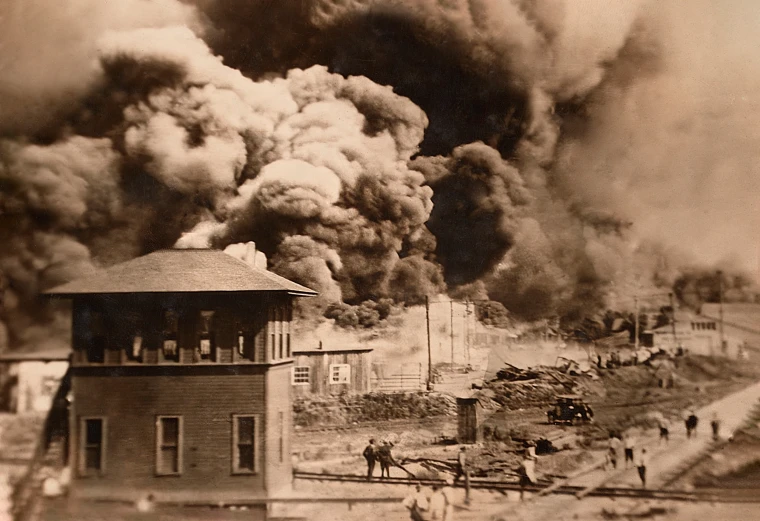The U.S. Justice Department has launched a review and evaluation of the 1921 race massacre in Tulsa, Oklahoma, Assistant Attorney General Kristen Clarke said.
The massacre started on May 31, 1921, when white attackers killed as many as 300 people, most of them Black, in Tulsa’s prosperous Greenwood neighborhood, which had gained the nickname “Black Wall Street.”
In announcing the review Monday, Clarke said the Justice Department aims to finalize it by the end of the year.
“When we have finished our federal review, we will issue a report analyzing the massacre in light of both modern and then-existing civil rights law,” said Clarke, who oversees the Justice Department’s civil rights enforcement efforts.
The review will be conducted under the Emmett Till Unsolved Civil Rights Crime Act, which allows the Justice Department to investigate death-resulting civil rights crimes that occurred on or before Dec. 31, 1979.

